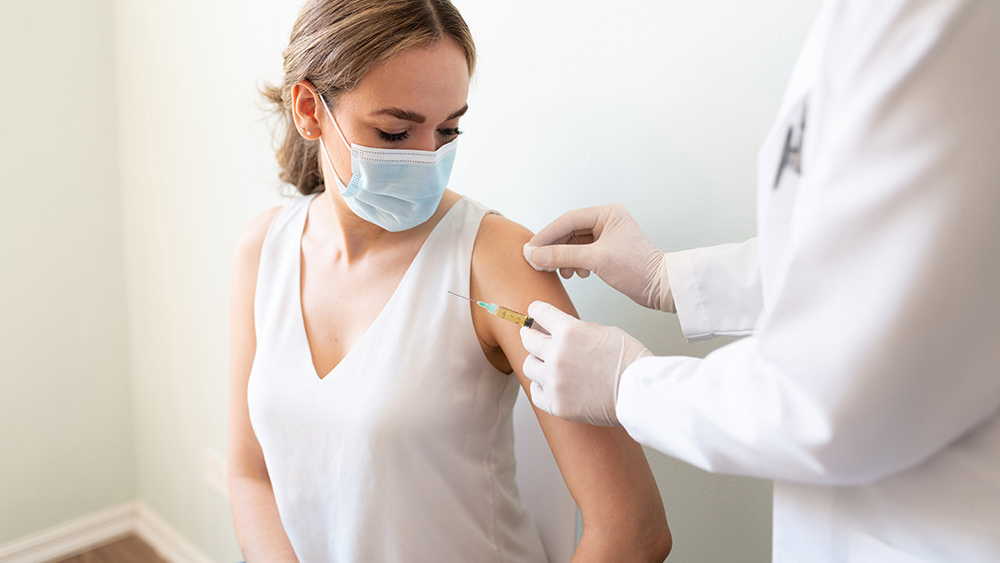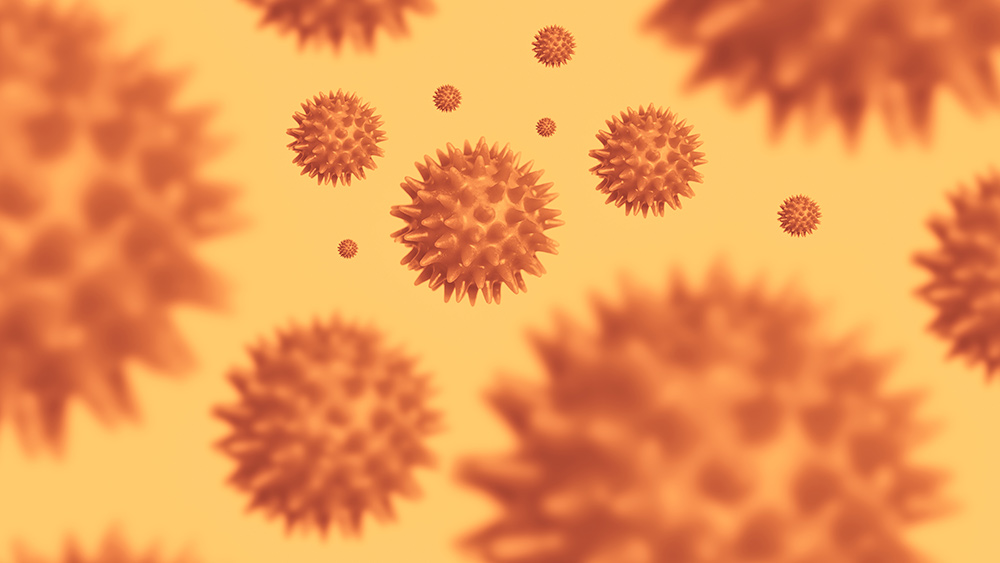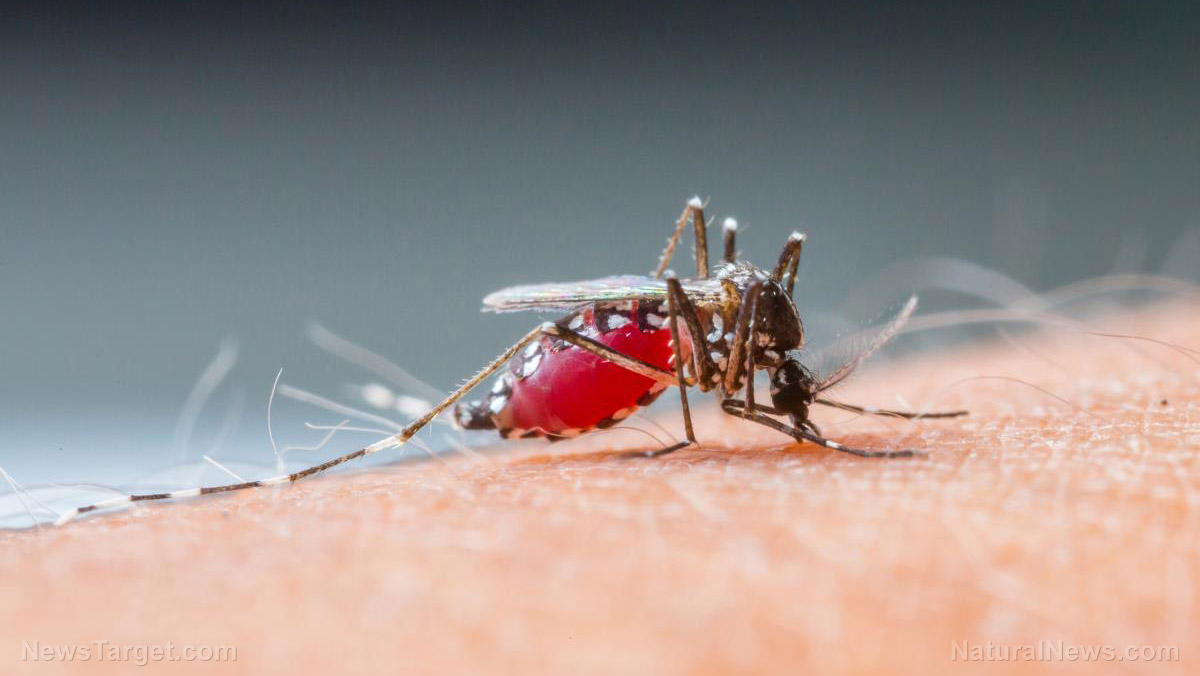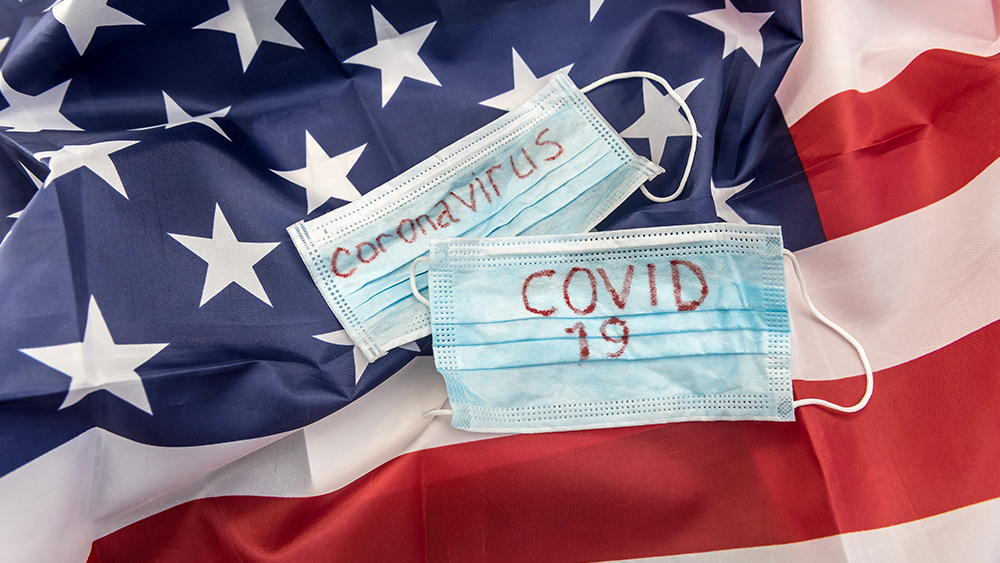4 People in Oregon test positive for coronavirus after receiving second vaccine shot
02/23/2021 / By Divina Ramirez

Four people in Oregon tested positive for the Wuhan coronavirus (COVID-19) even after having been vaccinated, state public health officials reported on Friday, Feb. 12.
The news makes Oregon one of the first few states to confirm “breakthrough cases.” These are people who test positive for the coronavirus at least 14 days after receiving the second and final dose of a COVID-19 vaccine.
Patrick Allen, director of the Oregon Health Authority (OHA), said such cases are to be expected because both the Pfizer-BioNTech and Moderna vaccines are only roughly 95 percent effective. Therefore, some people who received either vaccine may very well still get infected.
Officials said two of the cases are in Yamhill County, while the other two are in Lane County. The four showed mild or no symptoms at all, leading officials to suggest that the vaccine could have still reduced the severity of their infection.
Dean Sidelinger, the OHA’s state health officer, said Oregon could see more breakthrough cases. Nevertheless, getting as many Oregonians as possible vaccinated remains a critical objective, he added.
But even with the state’s aggressive vaccination efforts, public health officials said coronavirus cases are likely to rise as communities open activities. As such, Oregonians are still advised to wear face masks, avoid or limit outdoor gatherings and practice social distancing when inside establishments.
Health experts are monitoring the four cases and have started genome sequencing. Results may come as early as next week.
Oregon now has confirmed cases of U.K. variant
Currently, 10 percent of Oregon’s population has received at least one dose of a COVID-19 vaccine. More than 17,000 Oregonians are being vaccinated each day, on average, but authorities hope to get this up to 25,000 due to the presence of the coronavirus variant B.1.1.7 in the state.
B.1.1.7 is the more contagious variant first seen in the United Kingdom last December. Last month, around 10 states reported confirmed cases of the variant, which had been linked to a total of 144 infections at the time.
The Centers for Disease Control and Prevention (CDC) announced on Feb. 14 that there are 1,173 cases of the U.K. variant in 40 states.
Two other variants, B.1.3.5.1 and P.1, have also been linked to infections in a few states. B.1.3.5.1 was first detected in South Africa last December when coronavirus cases there surged. Meanwhile, the P.1 variant, which is now one of two Brazilian variants, was detected late last month amid a surge of cases in the city of Manaus.
As of Feb. 15, a total of 17 cases of the South African variant have been confirmed in California, Illinois, North Carolina, South Carolina, Texas and Virginia. Only three infections in two states were linked to the Brazilian variant. Sidelinger worries that both variants of the coronavirus could be detected soon in Oregon.
Unfortunately, given the novel nature of the known variants so far, experts know very little about their effects and their transmissibility. (Related: Mutated form of SARS-CoV-2 now predominates global infections.)
One of the prevailing concerns regarding the emergence of these new variants is whether they will undermine vaccination efforts. Scientists now know that the U.K. variant is more transmissible. It remains unclear whether it is deadlier than the original strain, but English health experts are of the idea that it is.
CDC Director Rochelle Walensky told CBS News on Feb. 14 that the U.K. variant might become the dominant strain in the U.S. by the end of March, according to their latest projections. Currently, only about four percent of coronavirus cases in the country are linked to B.1.1.7.
In light of the new variants spreading in some states, the CDC emphasized the importance of compliance with public health mitigation strategies, such as mask-wearing, social distancing and vaccination. Some states, including Iowa and Montana have eased some of their restrictions, which Walensky said is a mistake.
Go to Pandemic.news for more articles with updates on the coronavirus pandemic.
Sources include:
Tagged Under: Big Pharma, coronavirus, coronavirus vaccine, covid-19, harmful medicine, immunization, infections, pandemic, vaccines



















